Activists of all ages gathered on the south lawn of the Capitol building Saturday morning to protest Senate Bill 8, a new, restrictive Texas abortion law that went into effect Sept. 1. From around 9 a.m. to 1 p.m. speeches and performances amplified out to the protestors from a stage at the steps of the Capitol.
The rally was organized by Women’s March ATX, a local advocacy group for reproductive rights, LGBTQIA+ rights, and workers’ rights. The Austin rally was one of many reproductive rights protests going on across the country on Saturday.
Nicknamed “the nation’s most restrictive abortion law,” Senate Bill 8 bans abortions after six weeks of pregnancy by allowing private citizens to sue anyone who aids or abets in an abortion past six weeks. Citizens who are successful in bringing suit can earn at least $10,000. Eighty-five to 90% of abortions in Texas happen after six weeks, which means that this law bans the majority of abortions in the state.
Sophomore Audrey McClellan and junior Chloe Anderson both attended Saturday’s march.
“It was definitely a very positive and empowered crowd.” McClellan said. “It was an amazing experience, and it was crazy to look behind you and see thousands of other people there standing up for the same cause.”
It was Anderson’s first political rally at the Capitol.
“I had never been to a march before,” Anderson said. “With all the news and stuff about what Abbott was passing for Texas regarding the SB 8 bill, I felt like I needed to get more involved.”
Both McClellan and Anderson found a speech from Vienna, the leader of the Austin National Organization for Womens’ youth committee to be one of the most impactful. “Her message was so powerful and she did such an amazing job speaking,” McClellan said of the 12-year-old’s speech. Echoing this, Anderson said, “Honestly, it was so impressive.”
A small group of around 30 anti-abortion counter-protesters gathered to the right of the stage where the performances and speaking took place, holding signs that said: “I am the pro-life generation.” As the counter-protestors entered the area, Women’s March attendees attempted to block them from entering the lawn or speaking loudly. The two groups clashed and had verbal exchanges but Texas State Troopers monitored from nearby and the rally remained mostly peaceful.
Kathy Panak, who attened the rally with her husband Allan Gill, said that the rally gave her hope for a brighter future for Texas women.
“I was encouraged by the amount and variety of enthusiastic courageous people who showed up at the rally,” she said. “I hope it continues.”
We are pleased to present these images from Saturday’s rally as this week’s Tuesday Top 10 photo essay.
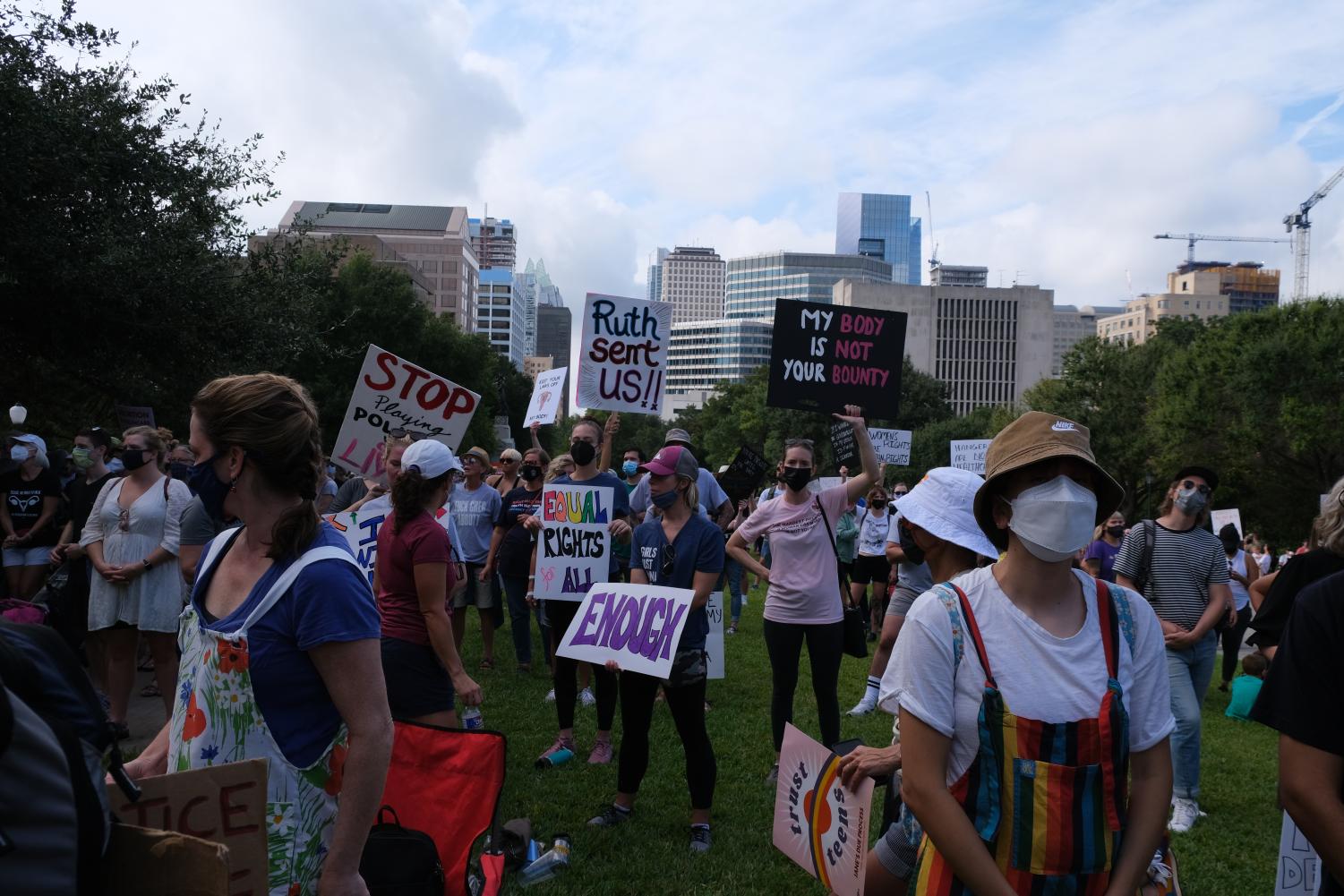
A group of abortion rights activists raise their signs as they gather and listen to the speakers at the women’s rally on Saturday at the Texas Capitol. Some cheer to agree with the proclamations made. “I wanted to show my support for organizations [at the rally] who are working to overturn Senate Bill 8,” junior Edith Holmsten said. “It is important for me to go to rallies because it is a way for me, as someone who can not vote yet, to show my support for issues that I care about. I learned about many different organizations that worked on women’s rights who had tables set up at the march.” Photo and caption by Katherine Boyle
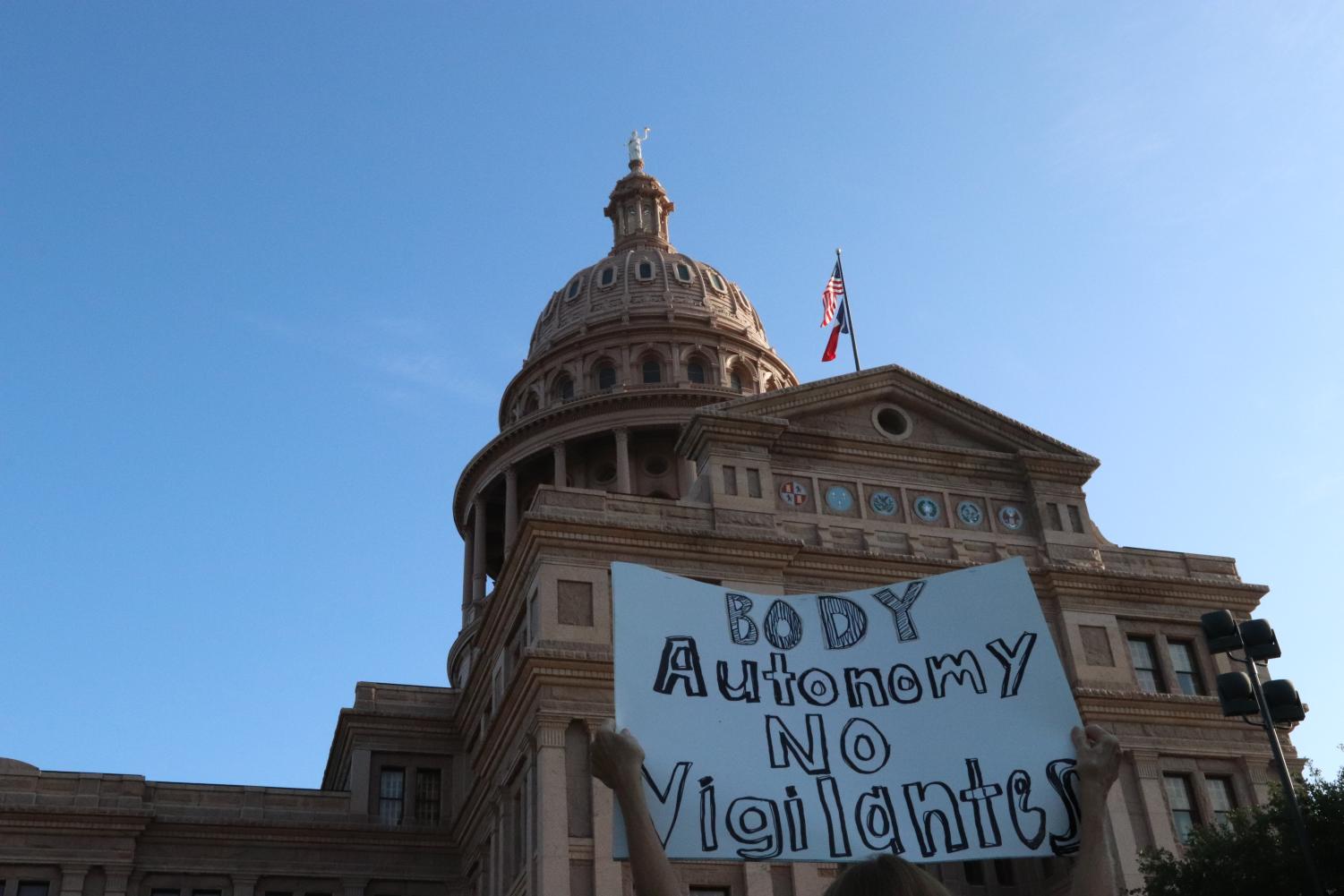
Standing in front of the Texas Capitol, a protester holds up a sign reading, “Body autonomy no vigilantes.” The protest held last Saturday was organized by Women’s March ATX, a local advocacy group, and had a full lineup of speakers and performers that presented throughout the morning. Audrey McClellan, a sophomore at McCallum, noted the high emotions of many at the event, “I saw one older woman crying and hugging her friend when the speakers started talking,” McClellan said. “I think it was because she had been there before, fighting the same fight 50 years ago.” Photo and caption by Meredith Grotevant.
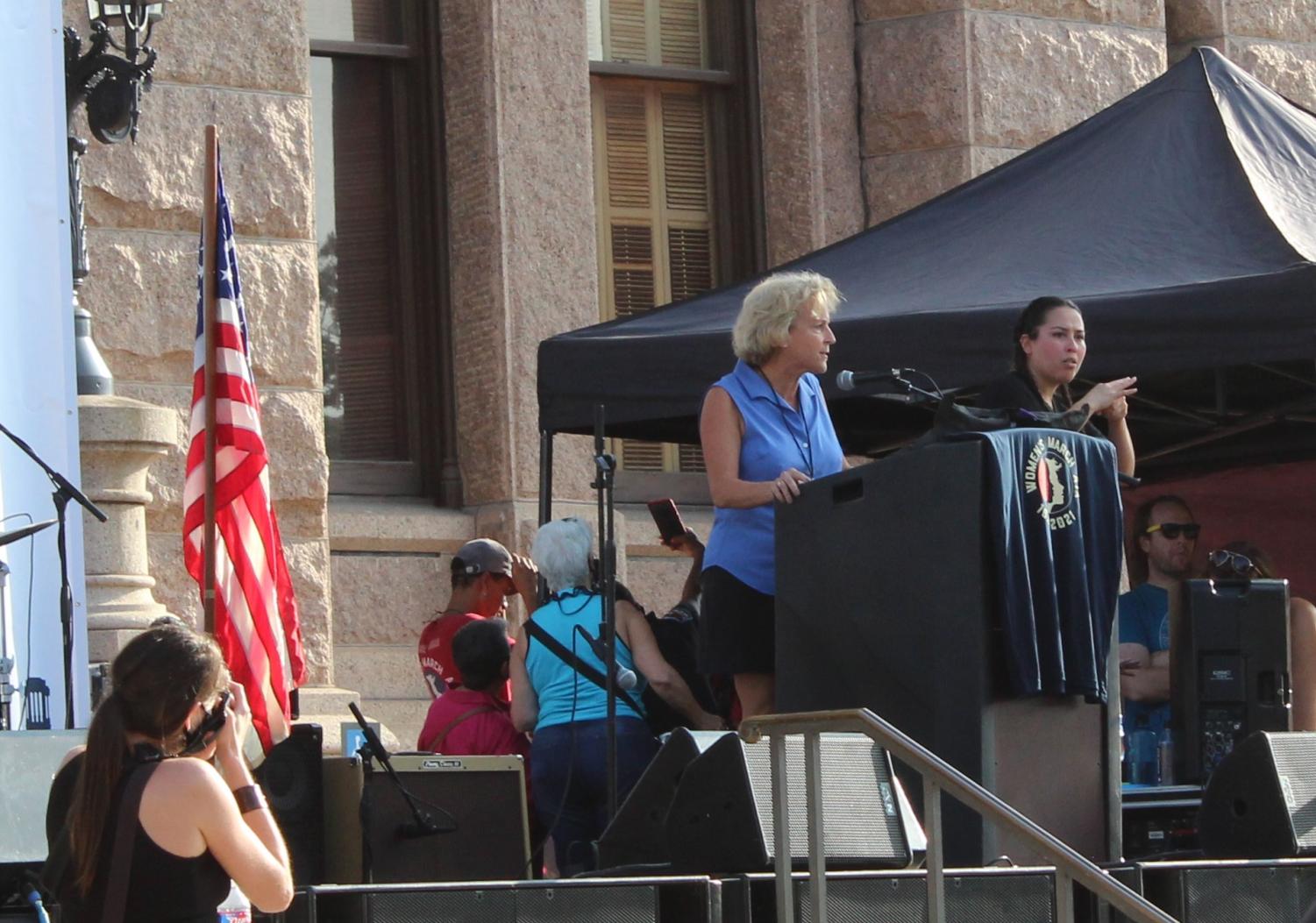
The director of End Community Homeless Coalition, Ann Howard, speaks in front of the Texas Capitol Saturday morning. “Today, together, we are redefining the spirit of Texas,” she said. “We believe in building communities with more access to health care, not less. More opportunities to vote, not less. With equal pay for equal work, not less. We want leaders who read climate science, not hide it. Who embrace our diversity, not fear it. And who strengthen democracy, not weaken it.” Howard left the podium to cheers from the crowd. Photo and caption by Bo Witzel.
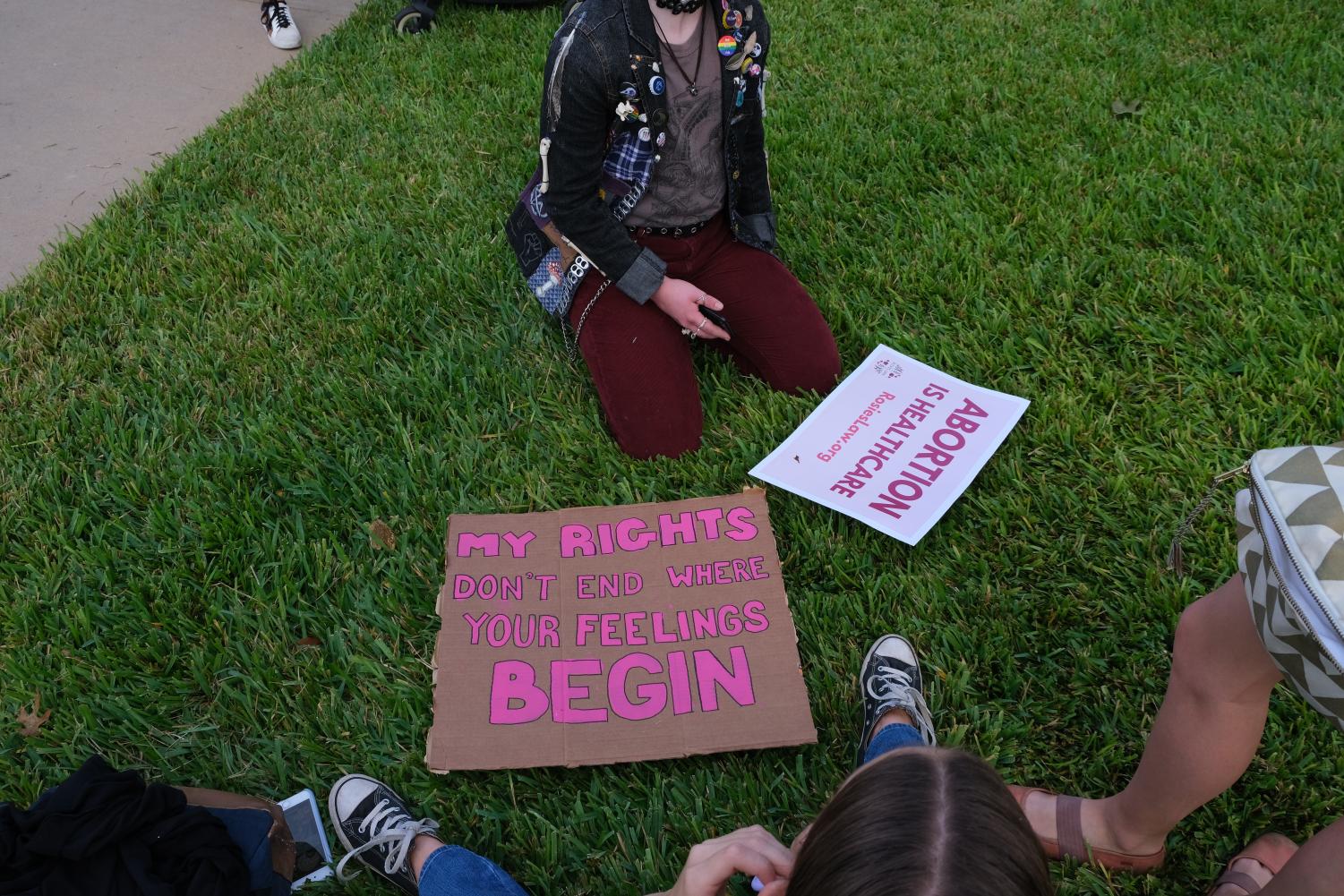
High school juniors River Alquist and Natalie Holmsten sit out in the Capitol lawn with their signs. “I went to the march to learn and fight for the rights of women,” Holmsten said. “I learned more about the issues related to abortion, such as lack of healthcare for women in poverty.” According to Holmsten, one speaker, a 12 year old girl, made an impactful speech. “[She] talked about how she could get pregnant at her age. She could have been raped and still not be able to get an abortion. [She] talked about wanting to protect her younger sister and herself from having a baby they couldn’t take care of.” Photo and caption by Katherine Boyle.
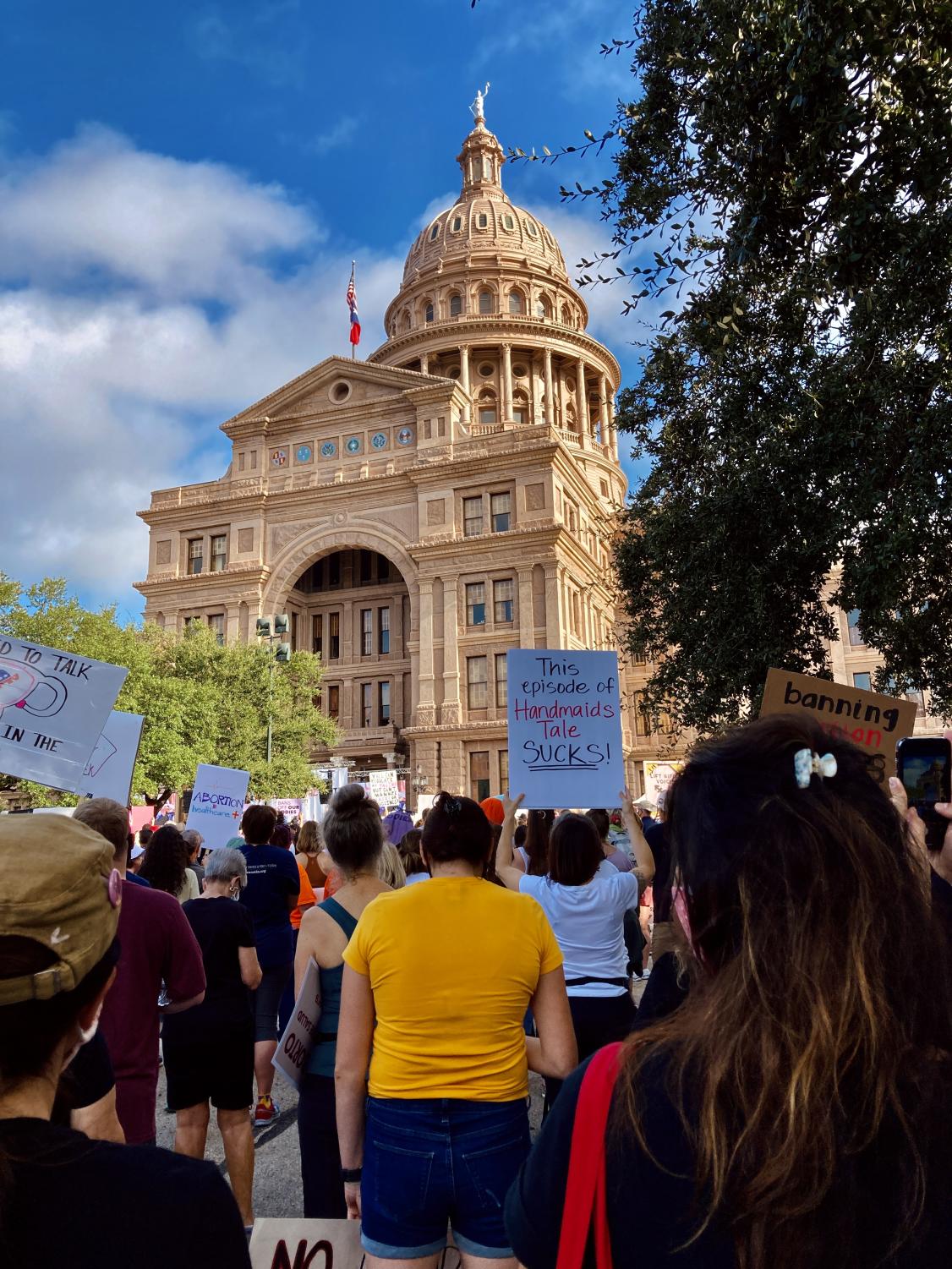
Opponents of Senate Bill 8 find the bill to be a direct encroachment on women’s rights and a violation of their constitutional right to privacy. SB8 limits women’s ability to seek abortions after a six-week window. Opponents of SB8 argue that by denying women legal access to abortion, the law will force women who cannot afford to travel outside Texas to pursue illegal and therefore dangerous abortions. “Most women in Texas who can afford it will get their abortions out of state,” Lawrence Gostin, a professor of constitutional law at Georgetown University, told The Texas Tribune. “For poor and rural women, the effects on their physical and mental health could be devastating.” Photo and caption by Amaya Collier.
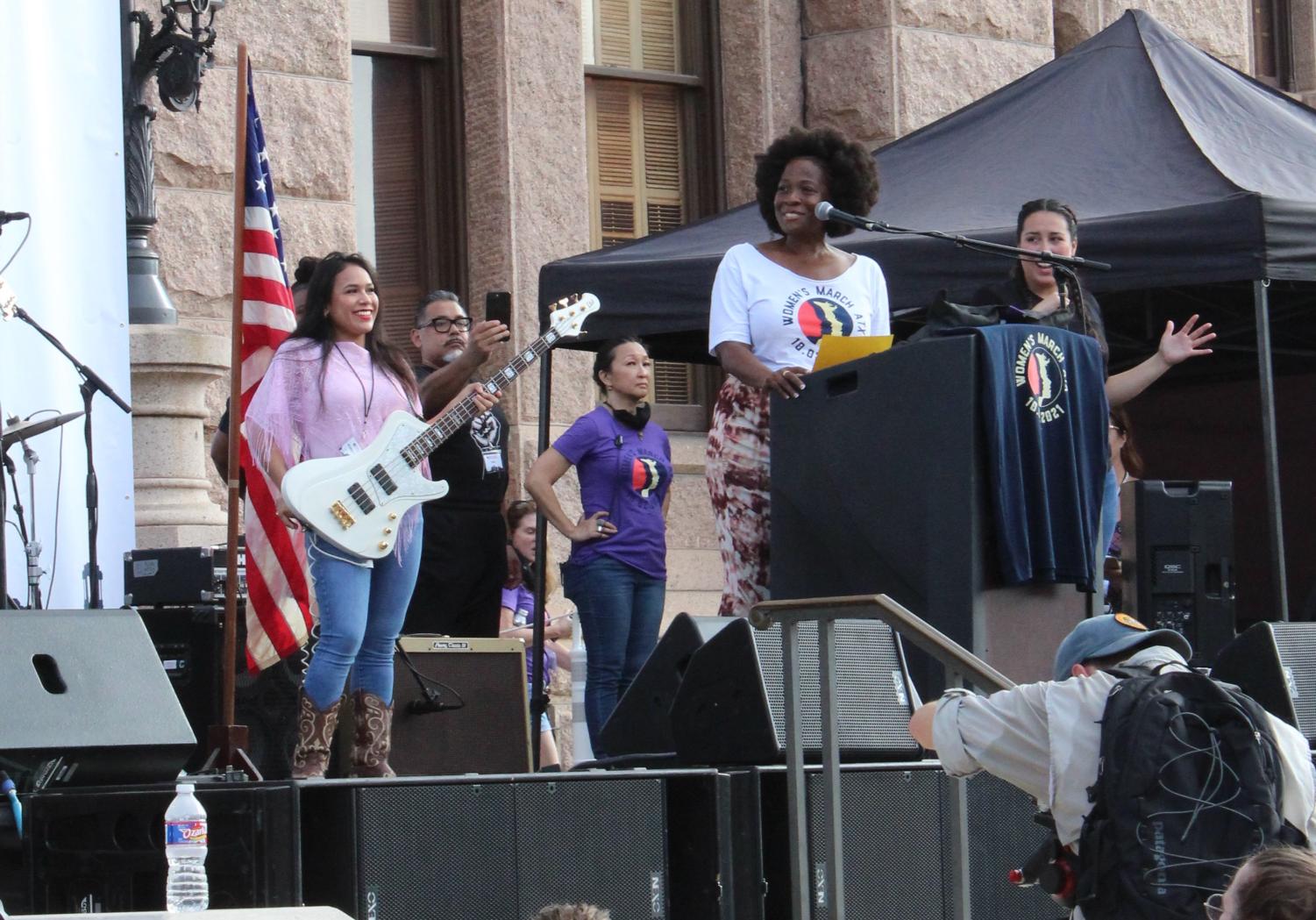
Commentator Jehmu Greene speaks in front of the Texas Capitol on Saturday morning. In response to the new abortion law, SB8, Greene urged Texans to make the supporters of SB8 pay at the ballot box. “These boots were made for walkin,’” Greene said, eliciting cheers from the crowd. “Vote them out! Vote women in!” The new law states that a “host body” cannot get an abortion in the state of Texas if a heartbeat can be detected. This, for most pregnancies, is at six weeks. Tori Baltierra, the lead singer of the Tiara Girls, stands to the side, smiling with her guitar. Photo and caption by Bo Witzel.
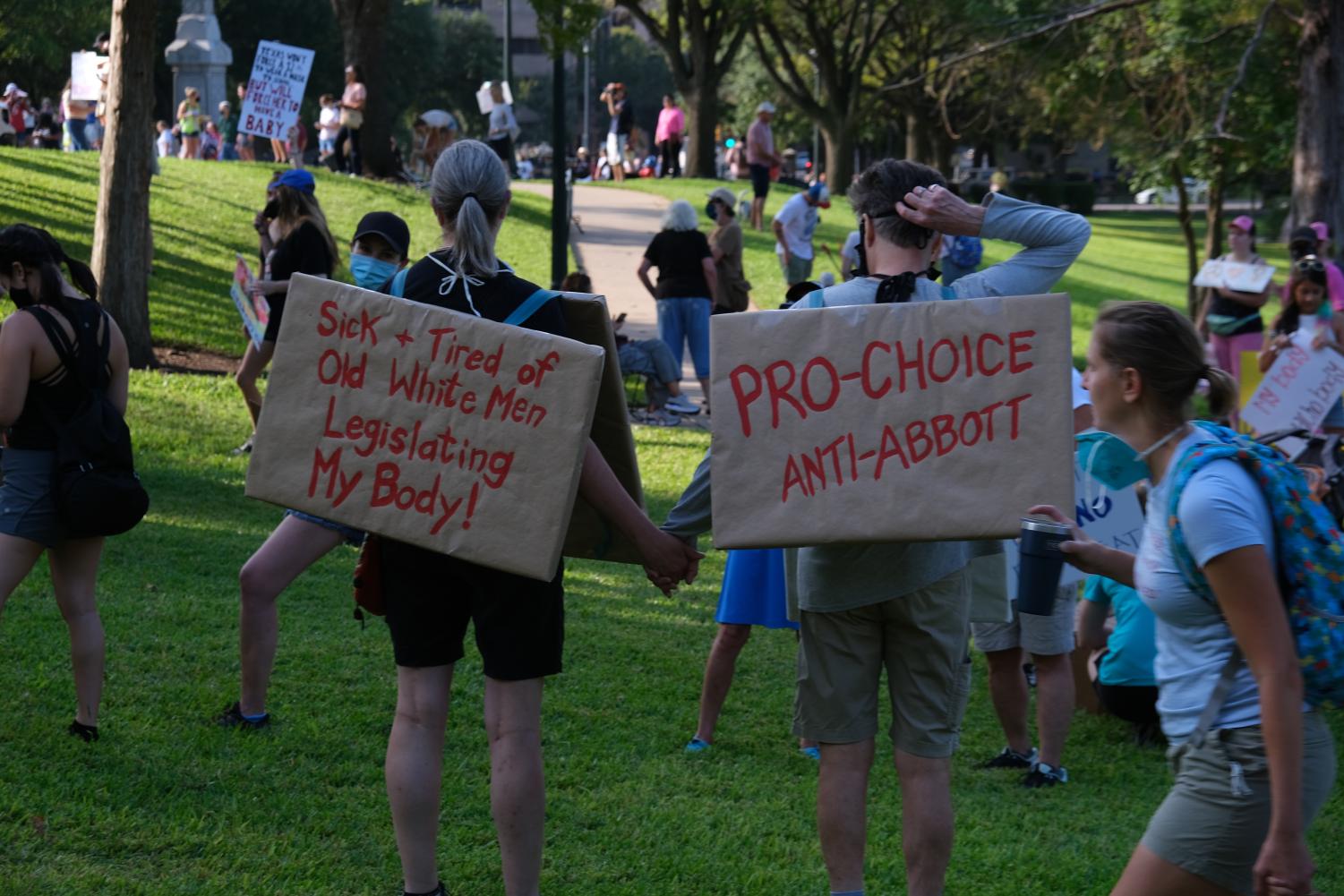
Holding the signs they made the night before, Kathy Panak and Allan Gill walk through the woman’s rally crowd at the Texas State Capitol, looking for friends and chatting with strangers while listening to the presenters’ speeches. The signs convey the primary message of the entire event: this year’s women’s rally took on an added urgency because of the passage of SB8. Panak mentioned two presenters whose message stood out at Saturday’s rally. “One presenter talked about how certain women wanted to have themselves sterilized so that they wouldn’t get pregnant if they were raped, and that same presenter pointed out that that protected the rapist,” she said. She also mentioned “the impossibly young 12-year-old presenter who said that the recent legislation would have her carry to term if she were raped.” Photo by Amaya Collier.
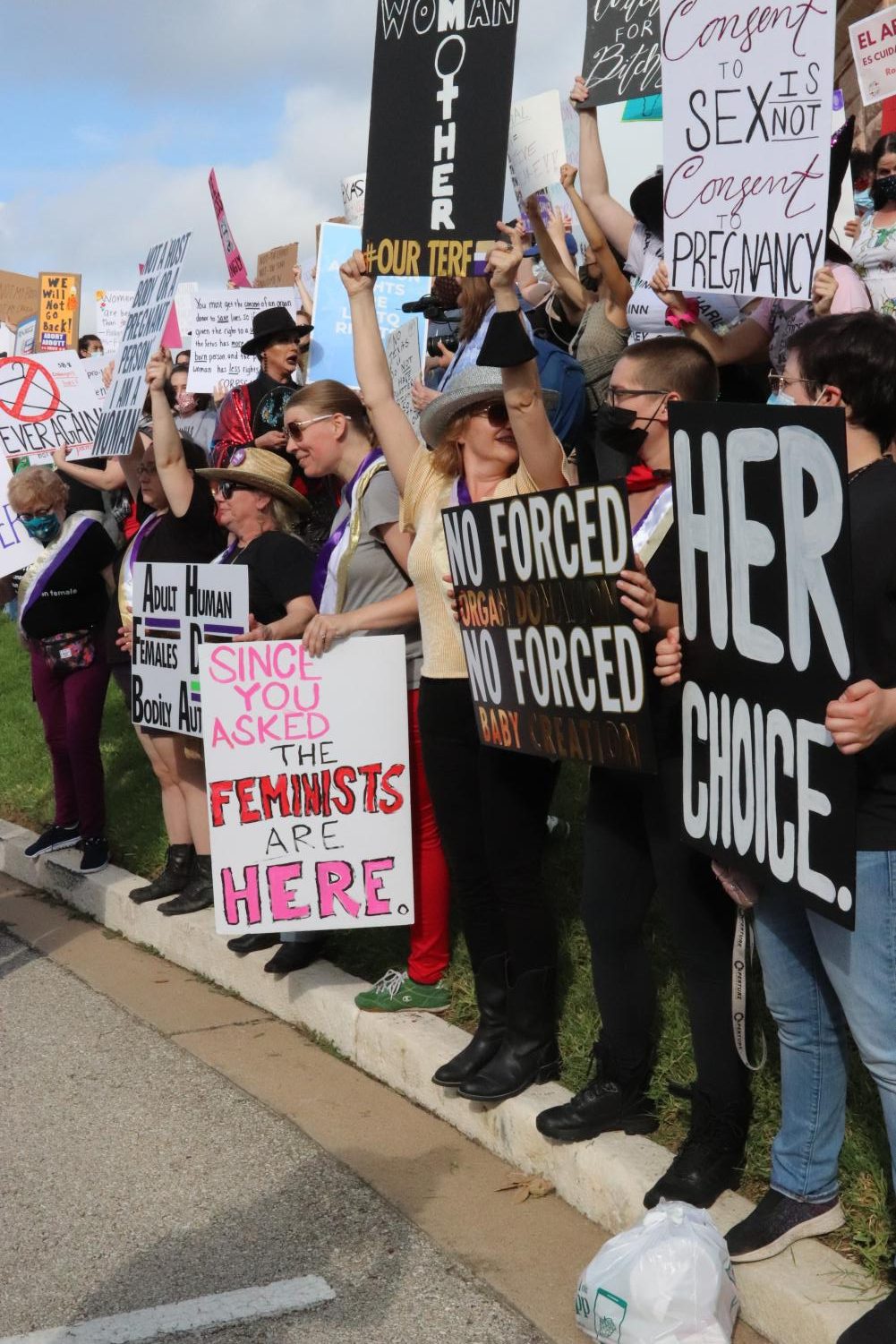
Protestors at the Capitol hold up handmade signs, trying to block counter-protestors at the Women’s March last Saturday. The March was in response to the passing of Senate Bill 8, a Texas bill that effectively prevents abortions beyond 6-weeks of pregnancy. On Saturday, dozens of reproductive rights protests occurred across the country. The small group of counter-protestors arrived at the Austin protest shortly after it commenced, standing in a line to the right of the stage. Almost immediately, attendees of the Women’s March rushed over and began holding signs and other items up in an attempt to block the anti-abortion group. As the Rally continued, the two groups had verbal clashes and the tension persisted. Texas State Troopers remained close by throughout the whole morning and, beyond yelling matches, nothing became of the conflict. Photo and caption by Meredith Grotevant.
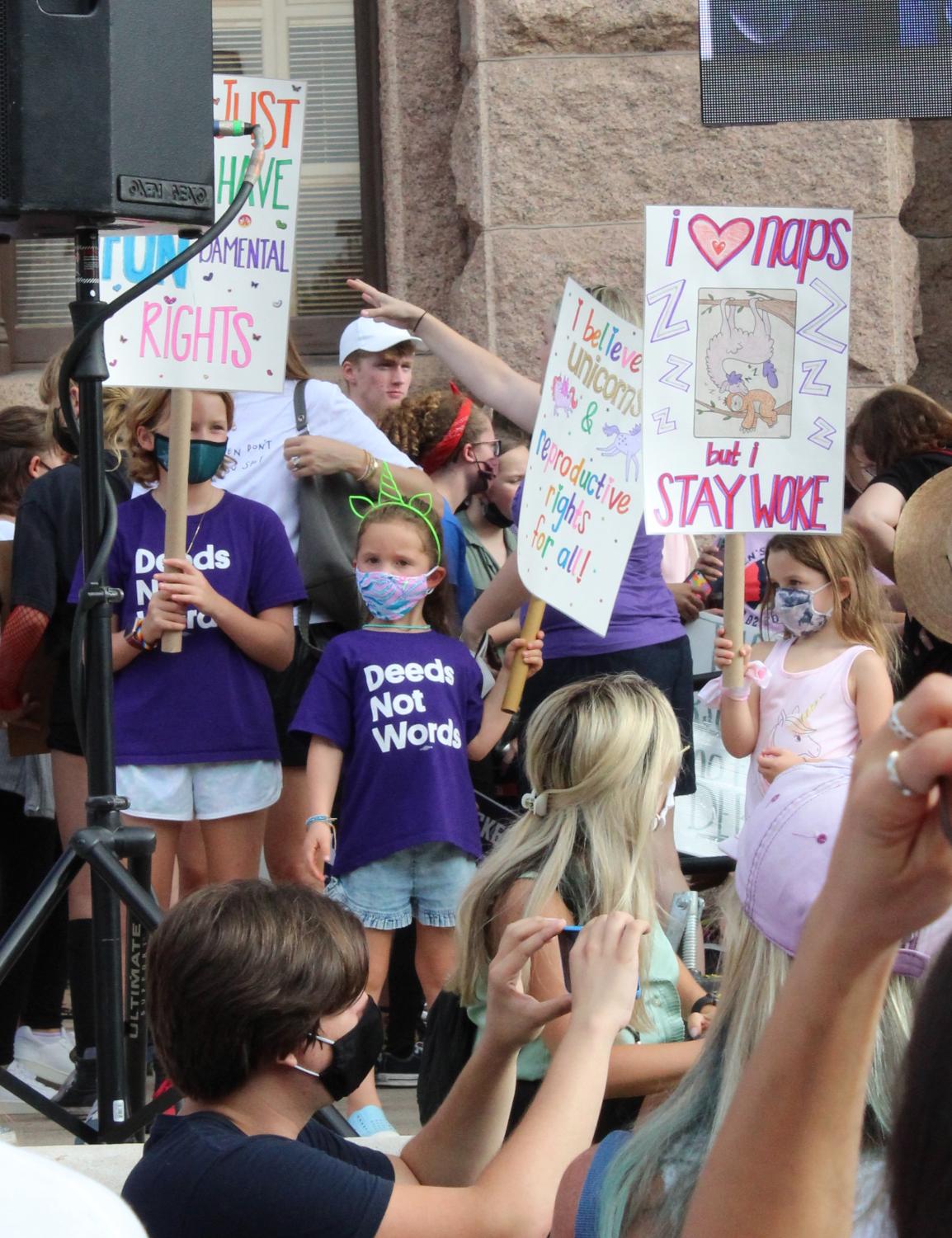
Three young girls hold signs that make the case for reproductive rights on behalf of the next generation of Texas women. Photo and caption by Bo Witzel.
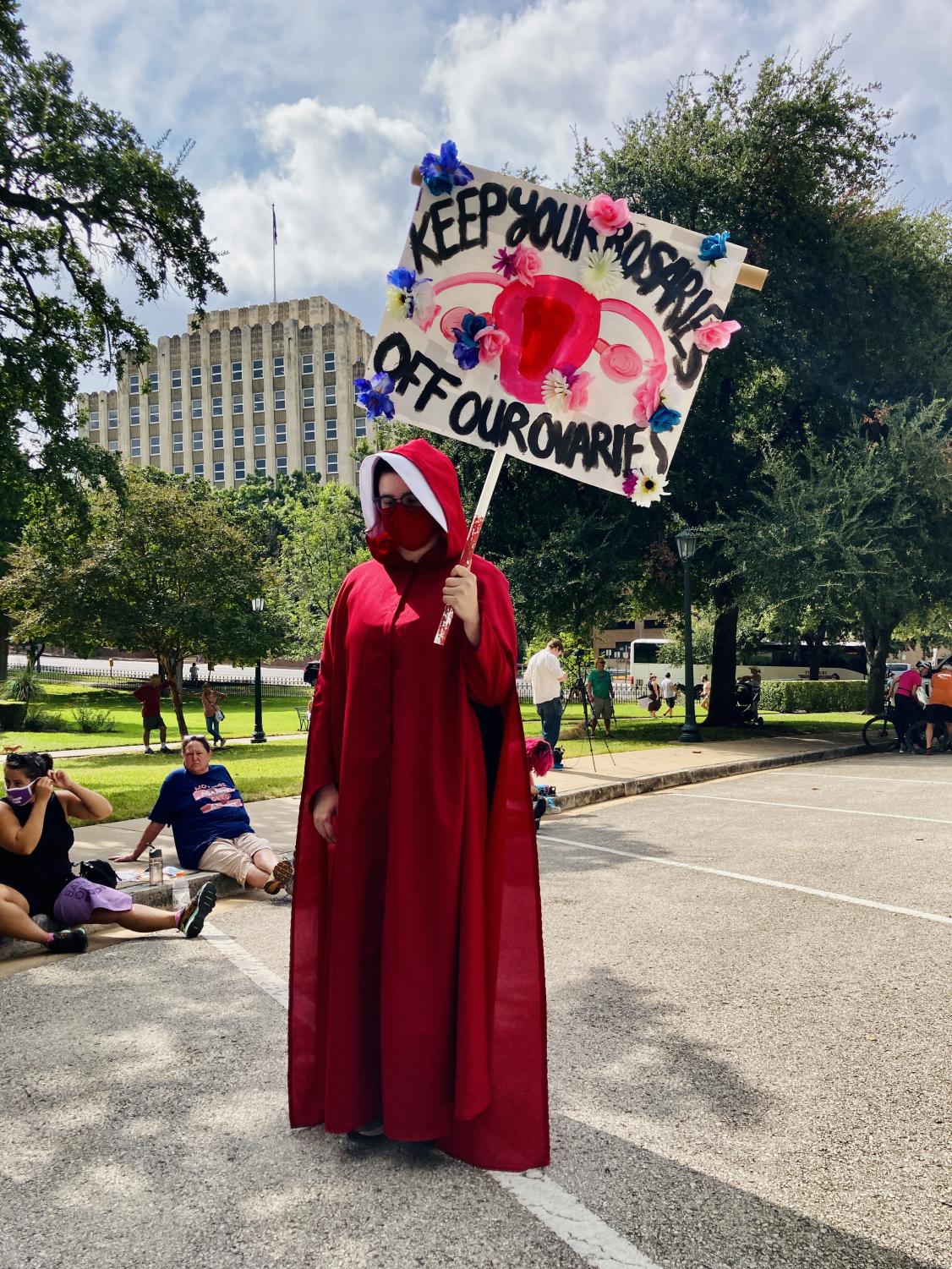
A protestor dressed in a Handmaid’s Tale-esque cape holds a sign commenting on the religious tones that have made their way into the conversation surrounding abortion and women’s right to choose. Margaret Atwood’s novel The Handmaid’s Tale and the Hulu TV series based on the novel depict a dystopian society in which women face being treated as property and have no free will concerning their uteri and birth rights. The Texas Handmaids, a pro-choice organization that advocates for reproductive rights in Texas, popularized the red robes to advocate for reproductive rights. Acknowledging that the Handmaid’s imagery “caters to white feminists,” however, the group announced on Facebook on Sept. 30 that they would no longer have all group members wear robes at events organized by other pro-choice organizations. The group said they would continue to wear the robes at their own events in order to “bring awareness” and to “work toward … achieving reproductive justice in Texas.” There were individuals dressed in Handmaid’s robes at Saturday’s rally, and there were signs that compared the passage of SB8 to the denial of rights found in The Handmaid’s Tale. Photo by Amaya Collier. Reporting by Josie Bradsby.
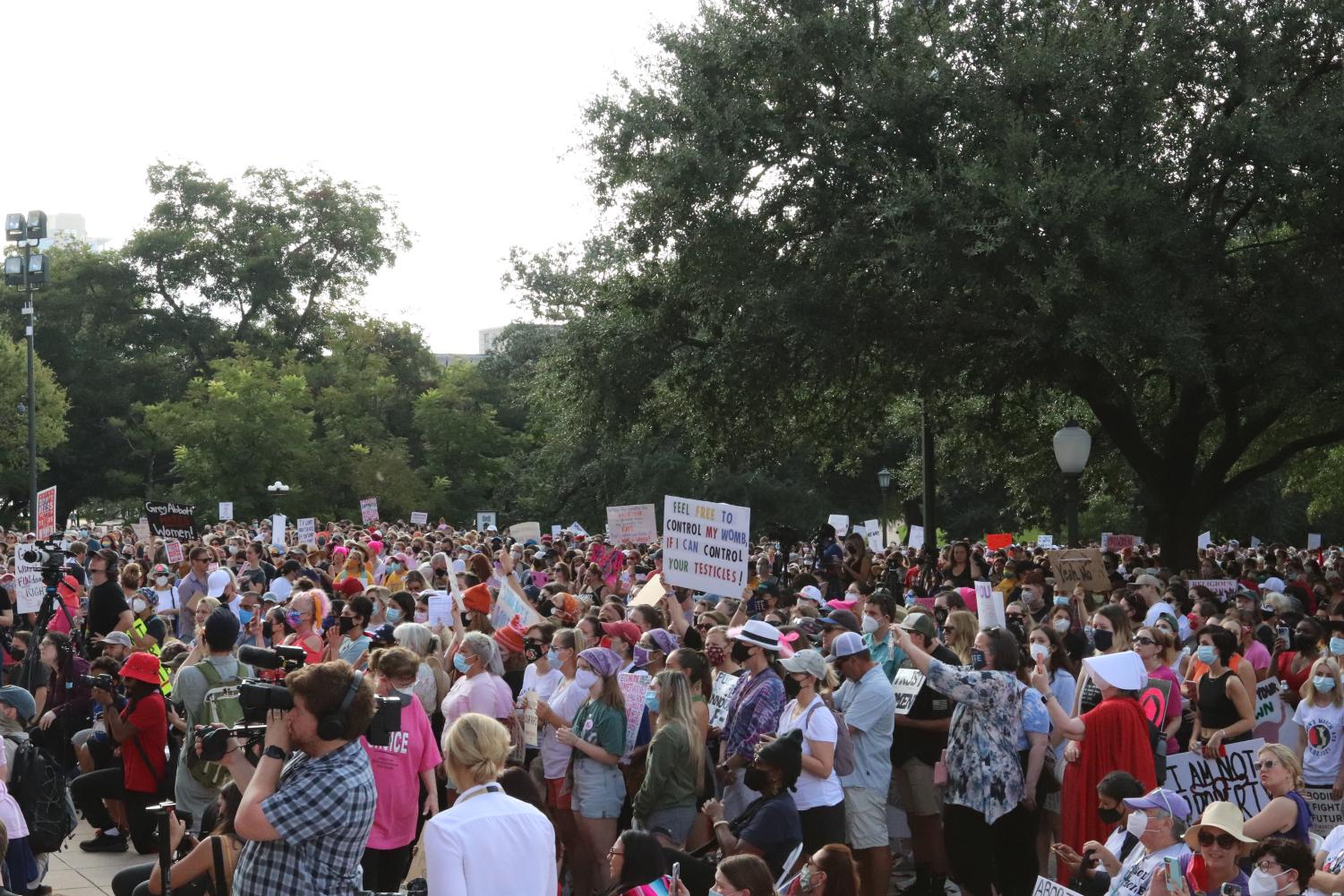
Crowd estimates for the march varied. The Statesman, Reuters and KUT all reported that there were hundreds of marchers present. The Daily Texan and The Daily Mail both estimated the crowd to be around 1,000. KVUE, Fox Austin and The New York Times reported the crowd to be in the thousands. Photo by Meredith Grotevant.
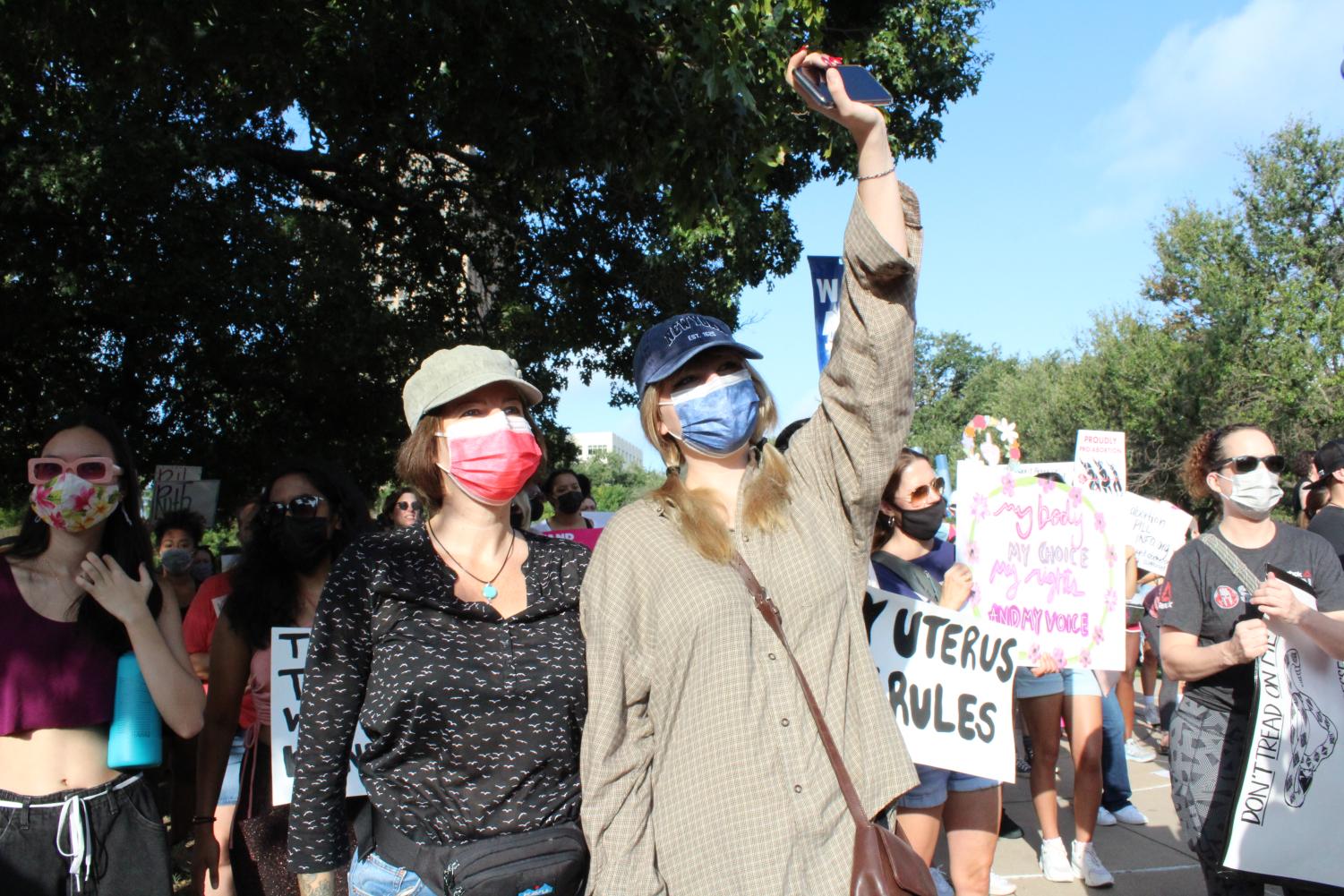
Sophomore Luna Cook raises their fist in protest during the women’s rally against SB8 at the Texas Capitol on Saturday. Cook said they were angry about the bill because it does not make exceptions in cases of rape or incest. ‘I think that’s so messed up,” they said. “I want this to change and not have old men decide what afab (assigned female at birth) people do with their bodies.” The law also invites private citizens to sue abortion providers or people who aid someone in getting an abortion. The Supreme Court declined to block the law upon its passage but has yet to weigh in on whether or not it is constitutional. Photo and caption by Bo Witzel.



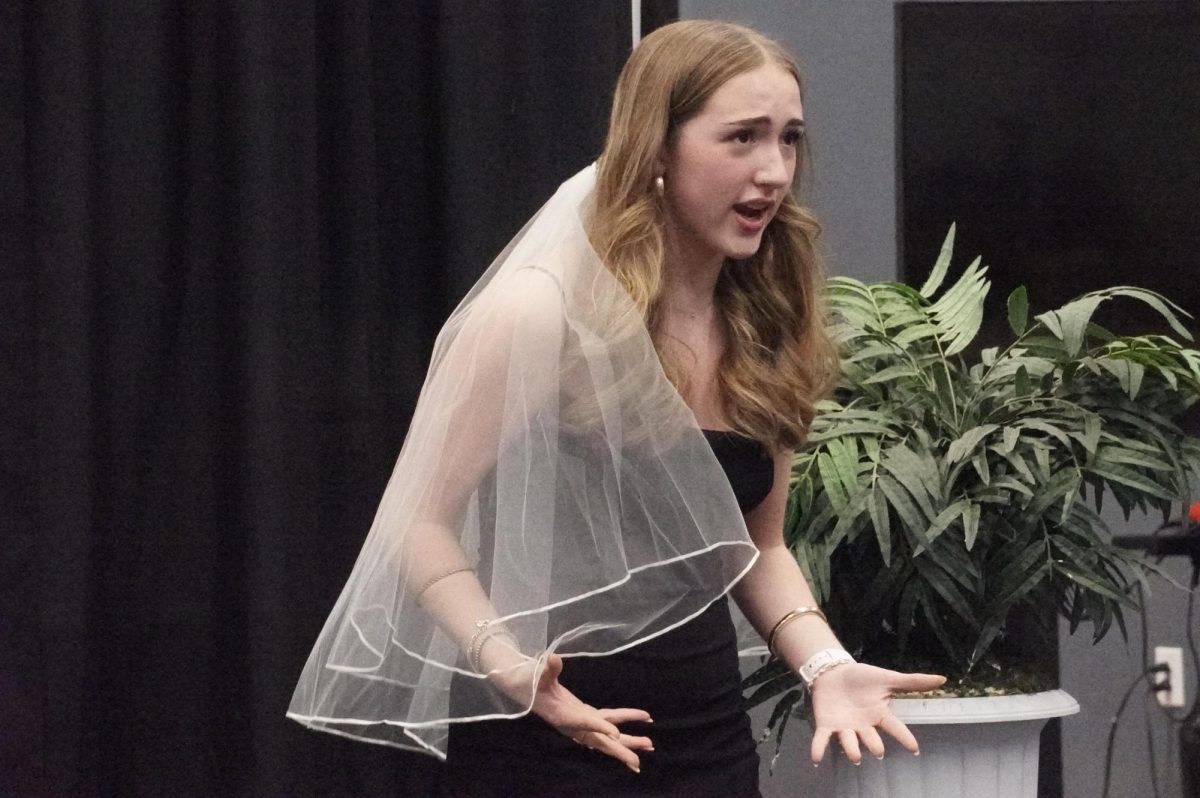
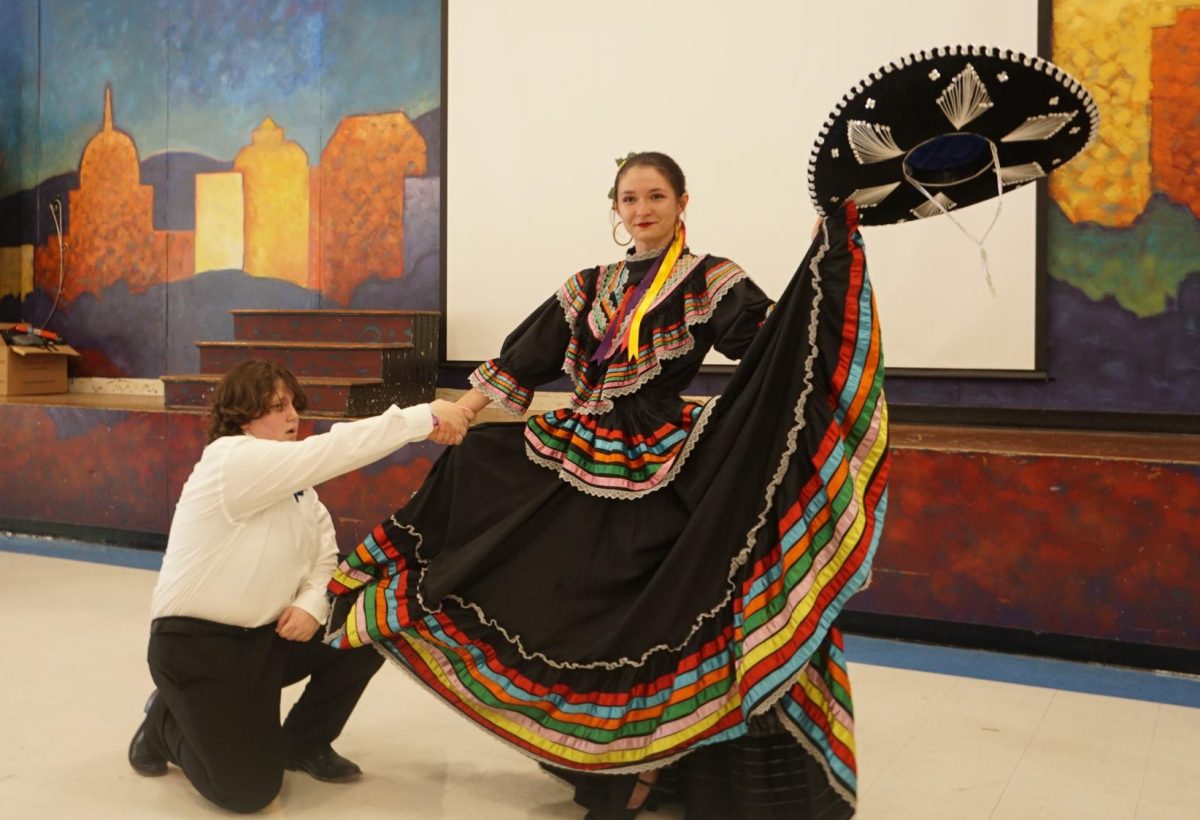

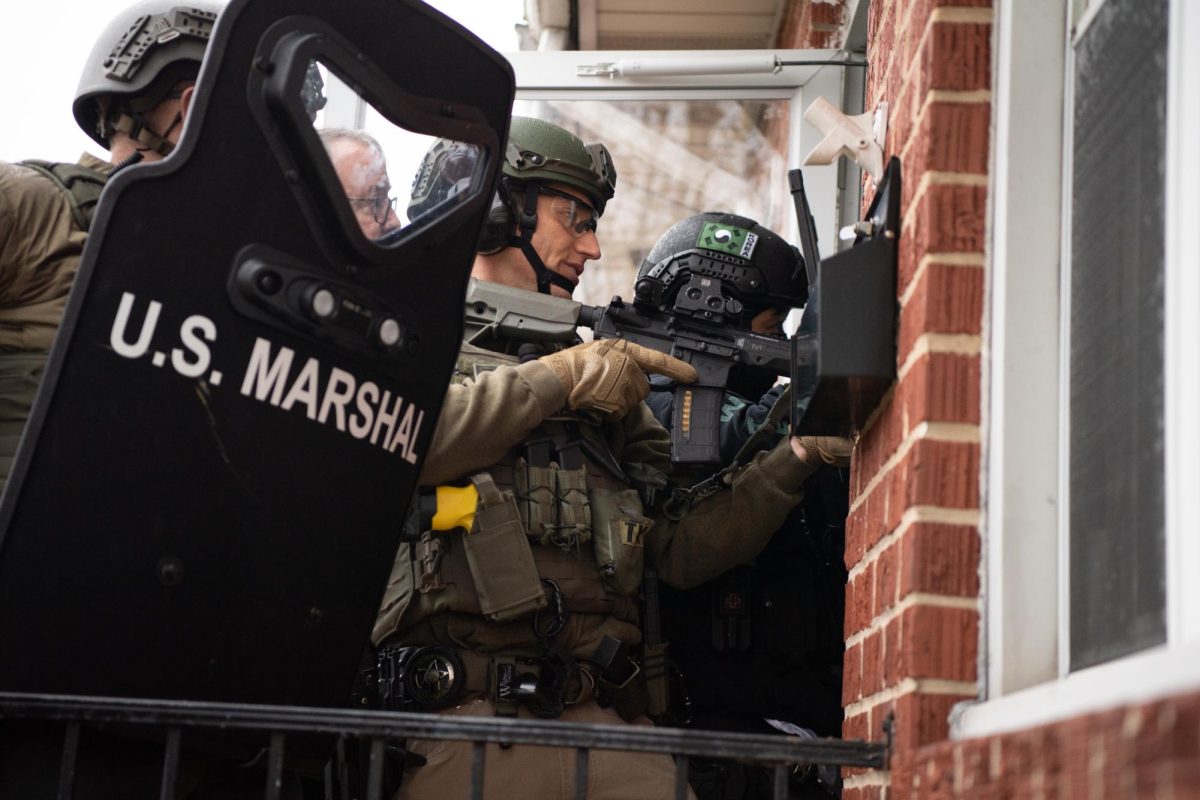



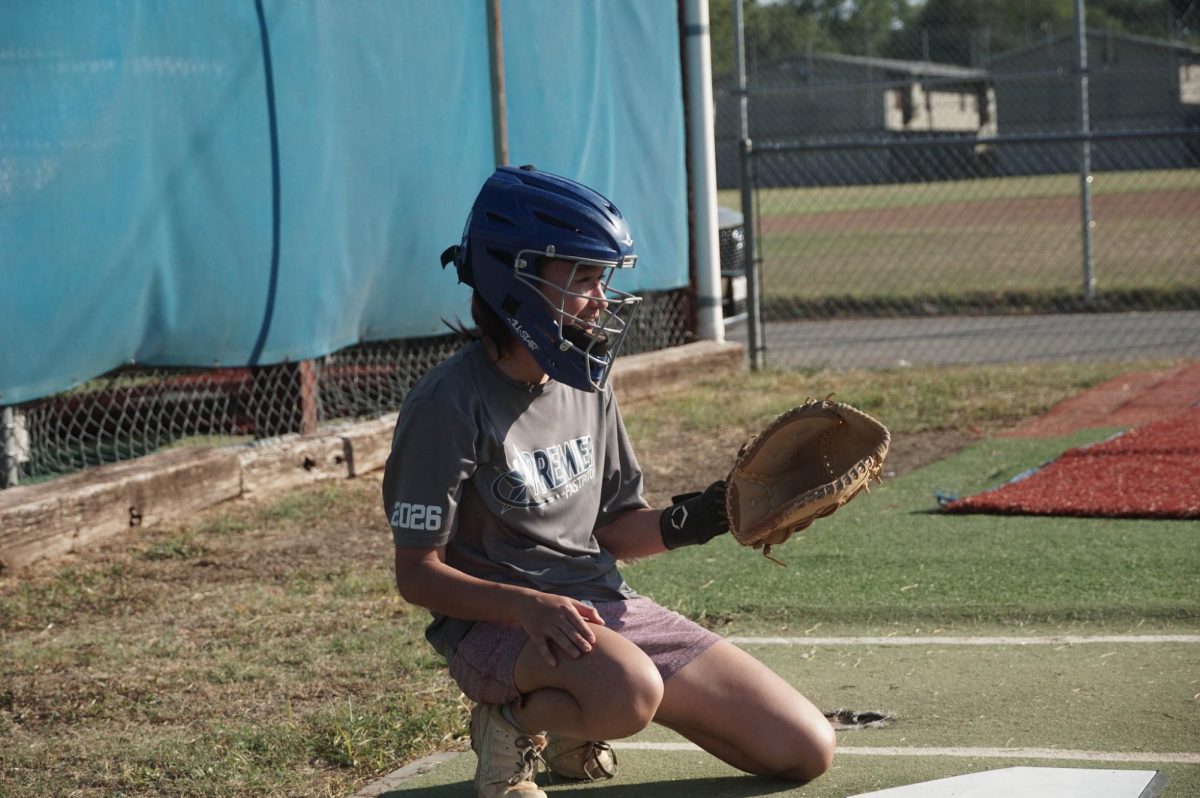

![ONE LAST BATTLE CRY: Senior Valeria Villafuerte-Perez celebrates with her friends after the senior class won the spirit competition. At each pep rally, a different game is played with volunteers from the crowd. Villafuerte-Perez was nominated by her friends to play a game in which the goal was to snatch a pom-pom from an opponent.
“Before school started, my friends and I had talked about going all out for senior year, so I told them to nominate me for a game since it was our last [Shoal Creek Showdown] pep rally,” Villafuerte-Perez said. “I wasn’t really scared to go down to the floor in front of the whole school, all I was focused on was getting the crowd hyped for the game.”
Villafuerte-Perez entered the game determined to win. After several rounds, as there were just two people left, she managed to snatch the last pom just in time, in order to secure a victory for the senior class.
“I was really happy I won the game for the class of 2026,” Villafuerte-Perez said. “Honestly, I just wanted to win because seniors rule.”
As this was her first pep rally as a senior, the event carried extra meaning to Villafuerte-Perez.
“Being in the stands as a senior feels very surreal,” Villafuerte-Perez said. “I still remember my first pep rally, and now I’m a senior having my last pep rally, I think in that moment it really set in that I’m a senior, and that I’m going to graduate soon.”
Caption by Sophia Manos. Photo by Julia Copas.](https://macshieldonline.com/wp-content/uploads/2025/09/54750679693_5f7d007e27_o-1200x675.jpg)

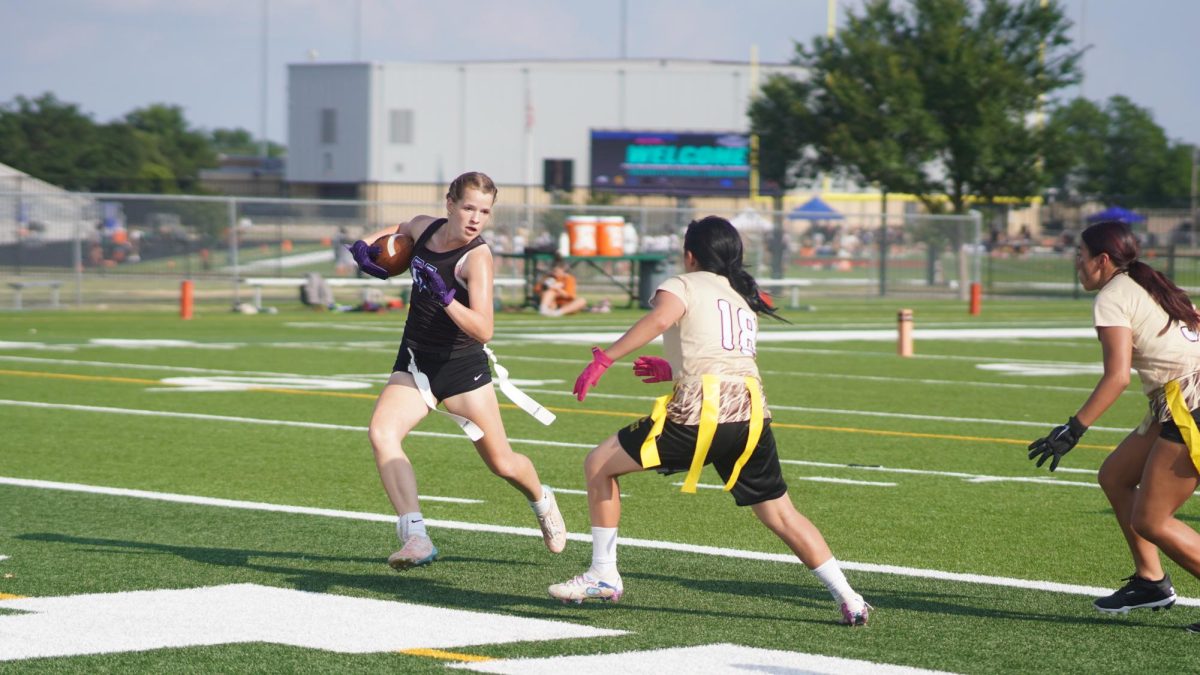
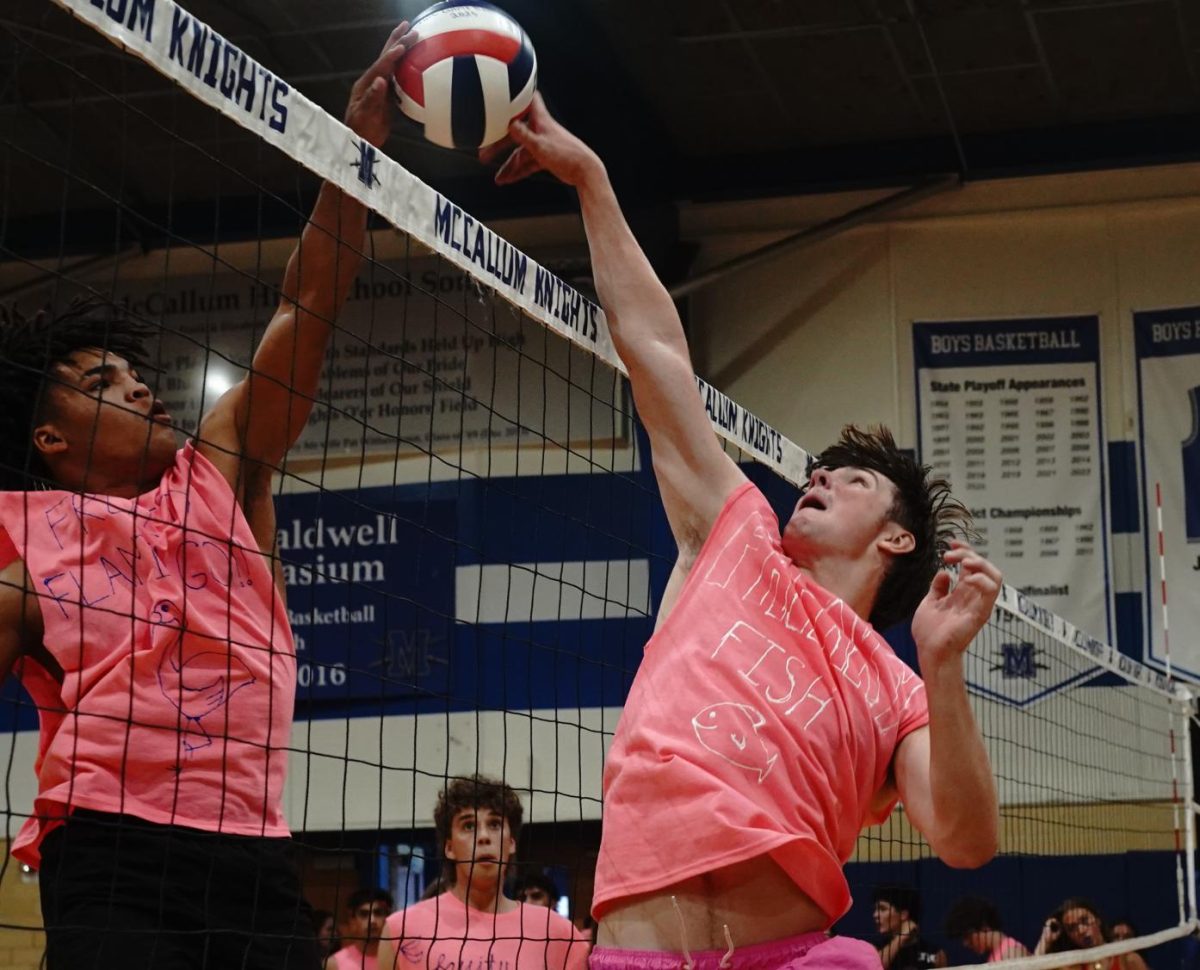

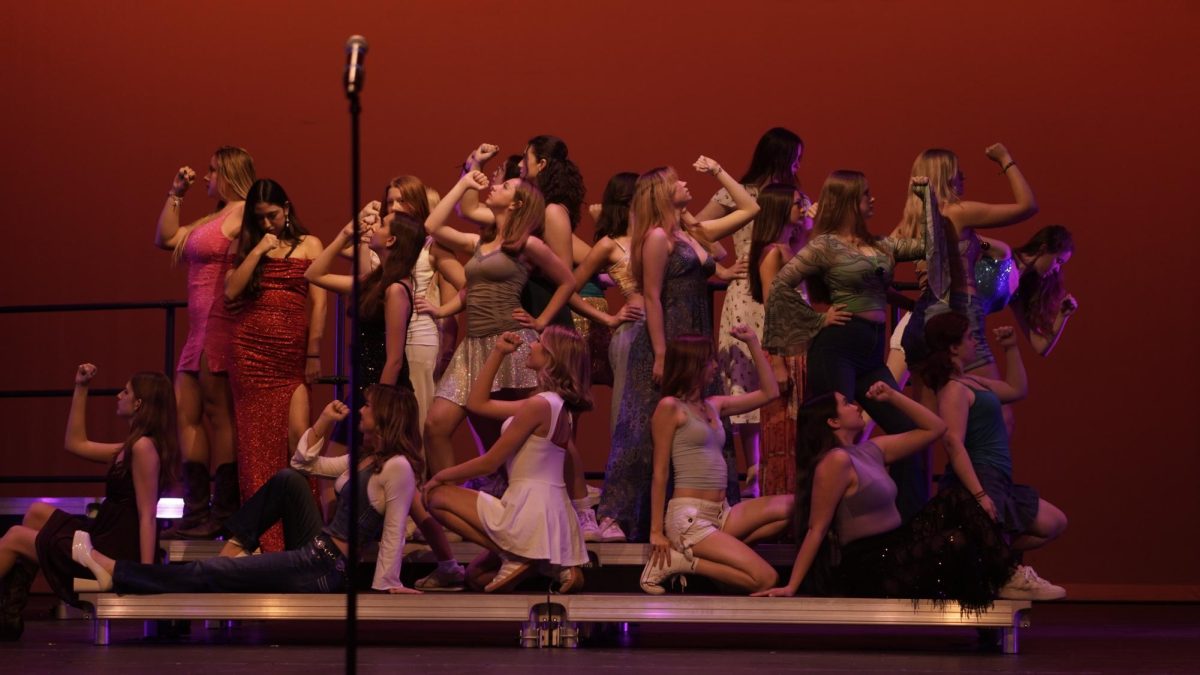
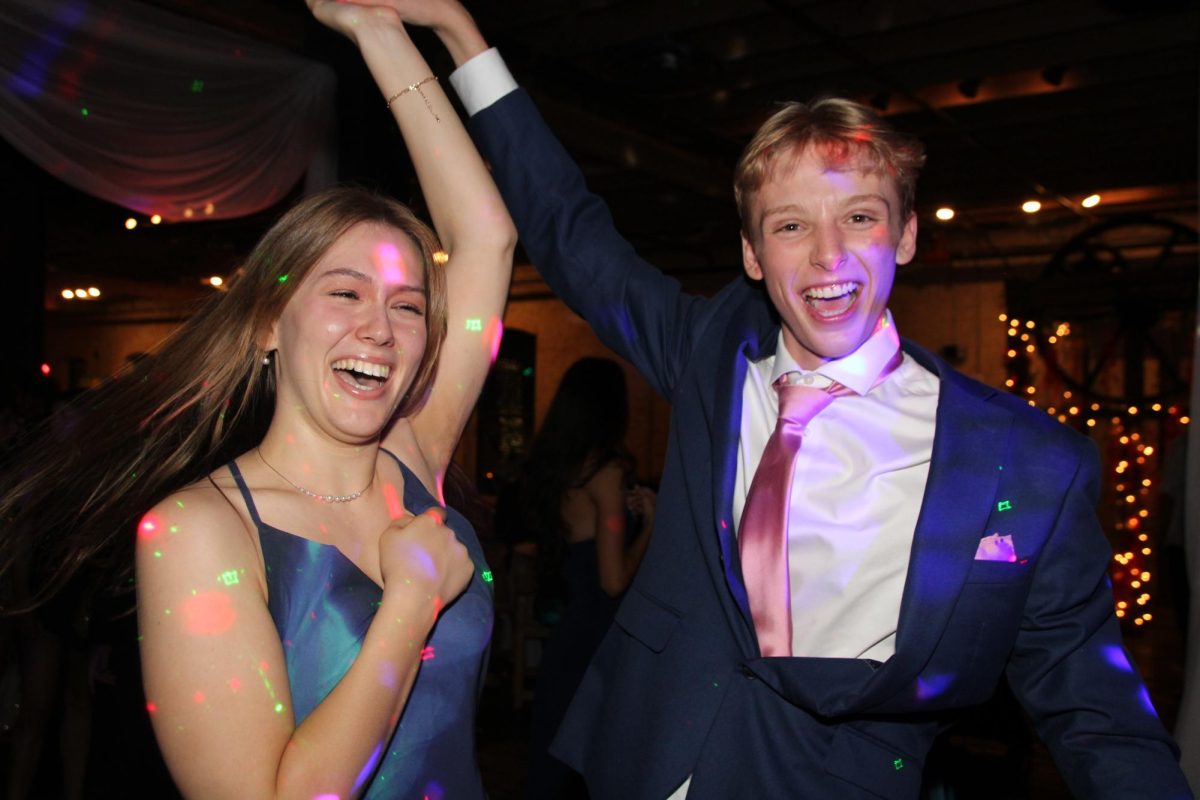
![WORKING TOGETHER: McCallum Dance Company performs the student-choreographed “Dancing with Death” during last Tuesday’s dress rehearsal before the spring dance show. Sophomore Pia Sosa performed in five different numbers during the show and thought that everything went well even despite a few challenges.
“I was getting a little worried closer to the end because there were still a lot of changes happening and people getting shuffled around into places,” Sosa said. “But by the tech week and by the shows, it really felt like we all worked together and came together.”
Sosa’s favorite part was performing “Come Play,” which was choreographed by junior Maya Tien. Sosa loved being able to work with Tien because of her level of preparation and being able to perform hip hop, since the dance company does not perform that style as much.
“It’s the first number I do in the show, and I always just felt like it gave me so much energy,” Sosa said. “It felt really good because we rarely do hip hop, so it just felt like such a great opportunity to do something that I don’t get to do all the time.”
Sosa explained that there were some challenges due to sudden changes in several pieces, however Sosa said she was proud of how the company responded as a whole.
“Everybody put their best foot forward and pushed through any challenges that they were having,” Sosa said. “I’m really proud of how the company handled it all.”
Overall, Sosa said she is grateful for all the work put in by the dance directors and the student choreographers for producing the show.
“We couldn’t have put the show together without [them],” Sosa said. “Mac dance is amazing and I can’t wait to choreograph next year.”
Caption by Riley Pita. Photo by Harper Maxwell.](https://macshieldonline.com/wp-content/uploads/2025/04/54471134934_215f07dcfb_o_54485123147_o-1-1200x800.jpg)

miranda • Oct 6, 2021 at 2:55 pm
I am glad Austin was able to come together and fight for what’s right.